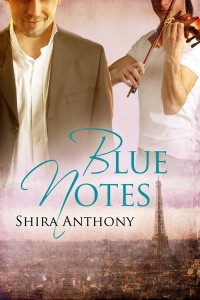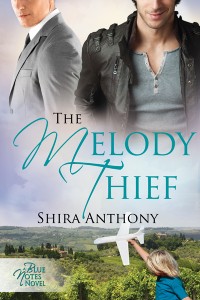 I’m sharing a post that’s also posted on Michael Mandrake’s blog today as part of the “Aria” Blog Tour. A little insight into the difficulty of writing about something that’s really an auditory experience: music. Hope you enjoy it! -Shira
I’m sharing a post that’s also posted on Michael Mandrake’s blog today as part of the “Aria” Blog Tour. A little insight into the difficulty of writing about something that’s really an auditory experience: music. Hope you enjoy it! -Shira
***************
So okay, I admit it. I’m a bit of a music geek (okay, so I’m a total music geek). I started studying music at age five with something called Dalcroze Eurythmics, a wonderful dance type activity that helps musicians get a sense of rhythm and music in their bodies (look it up—it’s really cool!). I started learning music theory at age six—the same year I started studying the violin on a tiny half-size instrument. Later, I became a professional opera singer and performed all over the US and in Europe. But it wasn’t until four years ago that I actually tried to write something about music.
All of which begs the question: how do you write about music? How do you write about something that’s primarily an auditory experience? How do you find the words and the emotional connection to express the sound of the music and the process of performance?
The answer? It’s not easy.
My Blue Notes Series books all have at their core musical expression. The first book, “Blue Notes,” was about a former pianist who faces his long-standing fear of performing years after he’s given up performing. There’s a scene in that novel where he begins to work through his fear with the help of the other main character in the book. The pianist plays a complex and technically challenging piece, working through both the notes and the emotions it evokes as he plays.
“Blue Notes,” was about a former pianist who faces his long-standing fear of performing years after he’s given up performing. There’s a scene in that novel where he begins to work through his fear with the help of the other main character in the book. The pianist plays a complex and technically challenging piece, working through both the notes and the emotions it evokes as he plays.
The second book in the series, “The Melody Thief,” features a classical cellist who lives a double life. He’s a world-renowned performer, sought after by the best conductors for his musical ability, but he’s also a sex-addicted, unhappy man who has never had a relationship that’s lasted more than a day or two. In the book, he plays with the Chicago Symphony Orchestra. The performance is a breakthrough for him because he’s finally met someone who loves him unconditionally, and that love begins to translate into the music he makes.
So how does a writer talk about music on paper? To be honest, I’m still learning how to do it. With each book, I’ve learned new tricks for conveying the beauty of music to my readers.
First off, the easiest trick in the book: tell your readers what piece they’re hearing. Give them links to the music so they can hear it (and even listen to it while they’re reading if they wish). For each book, I’ve posted a playlist on my website (www.shiraanthony.com). If you click on book extras, you’ll find links to various interpretations of the music in each book.
 Next, I try to focus on the emotions the music evokes: sadness, happiness, the feeling of being loved, the pain of loss. Classical music compositions tend to have one or two main emotions they express. In “Blue Notes,” Jason plays one of my favorite piano works, Brahms’ Intermezzo Opus 118, No. 2, a wistful and beautiful piece that is powerfully romantic. For Jason, the piece helps ground him emotionally and connect with the music within. It’s not overly challenging for him, so he doesn’t worry about making mistakes and embarrassing himself. He just feels the music in his soul. In “The Melody Thief,” Cary plays the Dvorak Cello Concerto. It’s an angsty, romantic and tumultuous piece that mirrors the turbulence in Cary’s own heart. It’s not sad, but it’s almost painful in its beauty, a wonderful companion to Cary’s internal struggle.
Next, I try to focus on the emotions the music evokes: sadness, happiness, the feeling of being loved, the pain of loss. Classical music compositions tend to have one or two main emotions they express. In “Blue Notes,” Jason plays one of my favorite piano works, Brahms’ Intermezzo Opus 118, No. 2, a wistful and beautiful piece that is powerfully romantic. For Jason, the piece helps ground him emotionally and connect with the music within. It’s not overly challenging for him, so he doesn’t worry about making mistakes and embarrassing himself. He just feels the music in his soul. In “The Melody Thief,” Cary plays the Dvorak Cello Concerto. It’s an angsty, romantic and tumultuous piece that mirrors the turbulence in Cary’s own heart. It’s not sad, but it’s almost painful in its beauty, a wonderful companion to Cary’s internal struggle.
Lastly, I try to use adjective to describe the music: warm, turbulent, bright, clear, colorful, hopeful, among others. The adjectives become the notes on the page, a bit like an artist uses colors to express emotion in a painting. Taken together with the other means of describing music, adjectives help to ground the reader in a sense of the beauty of the music.
Each Blue Notes Series book is a standalone story, meant to be read in any order. The most recent installment, “Aria,” focuses on Aiden Lind, an opera singer who struggles to balance his relationship and his skyrocketing career. Each book takes on a different aspect of music and musicians, and explores the lives of musicians based on my own personal experiences in the business.
Interested in reading a bit more about my musicians? Here’s an excerpt from “The Melody Thief”—the passage I mentioned above, where Cary begins to grow as a musician in part because of his relationship with Antonio, the other main character in the story. I hope you enjoy it! –Shira
*****************
Blurb: Cary Redding is a walking contradiction. On the surface he’s a renowned cellist, sought after by conductors the world over. Underneath, he’s a troubled man flirting with addictions to alcohol and anonymous sex. The reason for the discord? Cary knows he’s a liar, a cheat. He’s the melody thief.
Cary manages his double life just fine until he gets mugged on a deserted Milan street. Things look grim until handsome lawyer Antonio Bianchi steps in and saves his life. When Antonio offers something foreign to Cary—romance—Cary doesn’t know what to do. But then things get even more complicated. For one thing, Antonio has a six-year-old son. For another, Cary has to confess about his alter ego and hope Antonio forgives him.
Just when Cary thinks he’s figured it all out, past and present collide and he is forced to choose between the family he wanted as a boy and the one he has come to love as a man.
******************
Excerpt: “The Melody Thief,” by Shira Anthony
Cary spent the first half of the program listening to the Beethoven from the wings. At last, on stage an hour later, he closed his eyes and listened to the long orchestral introduction to the Dvorák, noting with pleasure the richness David was able to coax from the string section and the clear, powerful tones of the horns as they took over the melody from their stringed counterparts.
He adored this music, from its dark and demanding opening theme to the more subdued secondary theme in the brass and the woodwinds. The warmth of the sound from the orchestra behind him sent chills down his spine as he opened his eyes once again and looked up for David’s cue. The conductor met his eyes with a trace of a smile on his lips, then lifted his baton.
The opening measures of the solo flew by with their arpeggio passages, giving way to the secondary theme with its lilting melodic line. Back and forth, soloist and orchestra wove the complex tapestry the composer had envisioned. In this piece, the cello and the orchestra were both integral to the music. Perhaps this was why Cary adored it so much, and the sense that he and David created the music together made this performance so much more satisfying than any other until now. For a short while, Cary just lost himself in the music as his fingers found their way with ease through the treacherous double-stops and arpeggios that made this such a virtuosic composition.
His eyes filled briefly with tears as the last notes resonated from the cello and the final movement came to a close. For a moment, he was utterly lost to understand the depth of his own emotion. How many times had he played the same notes over the past twelve years, since he had mastered the piece? And yet this time, it was entirely different. He came back to himself with the thunderous applause from the audience, and struggled to regain his composure.
“I’ve never heard you play as well,” David said as they both walked to the edge of the stage to take their bows. It was true; he never had. And he was pretty sure he understood why.
Back in his dressing room afterward, Cary sank into the couch and closed his eyes for a few minutes. It had become a bit of a habit for him to meditate after a performance—it was something Aiden had suggested to him years ago and which he had initially laughed off. Today, more than any other, he needed the time to decompress.
The door opened a crack and Alex Bishop peered inside. “You decent?”
“Never,” Cary answered with a snort. “Come on in.”
“I hope you don’t mind.” Alex walked into the room. “I brought someone with me.”
Cary was about to say something clever when he caught a glimpse of blond hair in the doorway. “Antonio?”
“I was in the neighborhood,” Antonio said, “and someone told me the music here was good.”
Grinning broadly, Alex closed the door behind him on the way out.
“You came all this way just to hear me?”
“Why not?” Antonio said, taking Cary into his arms and giving him a tender kiss.
Cary melted into the warm embrace, partly out of sheer exhaustion, but even more out of relief. “I missed you,” he whispered. Why was he afraid to say it louder? He loved this man.
Antonio kissed his hair and exhaled, his breath hitching with emotion.
“I missed you too, caro mio. Two weeks is too long.”
“How long can you stay?” Cary knew he shouldn’t feel so needy, but the performance had left him a bit off-kilter, and he needed reassurance that Antonio wasn’t leaving the next day.
“I’ve asked my colleague to handle things at the office. I’m going to stay until you’ve finished the recording. If you’ll have me, of course.”
“I’ll have to think about that.” Cary edged over to the door and locked it behind him. “But first I need to get out of this sweaty tux and take a shower.”
“I could help. I’m told I’m good at bathing other people.”
Cary pulled Antonio’s jacket off, unknotted his tie, and began to undo the buttons on his crisp white shirt. “That’s just what I was counting on.”
***************
“The Melody Thief” and the other books in the Blue Notes Series are available at Dreamspinner Press, Amazon, Barnes & Noble, and AllRomanceEbooks, among other distributors.

